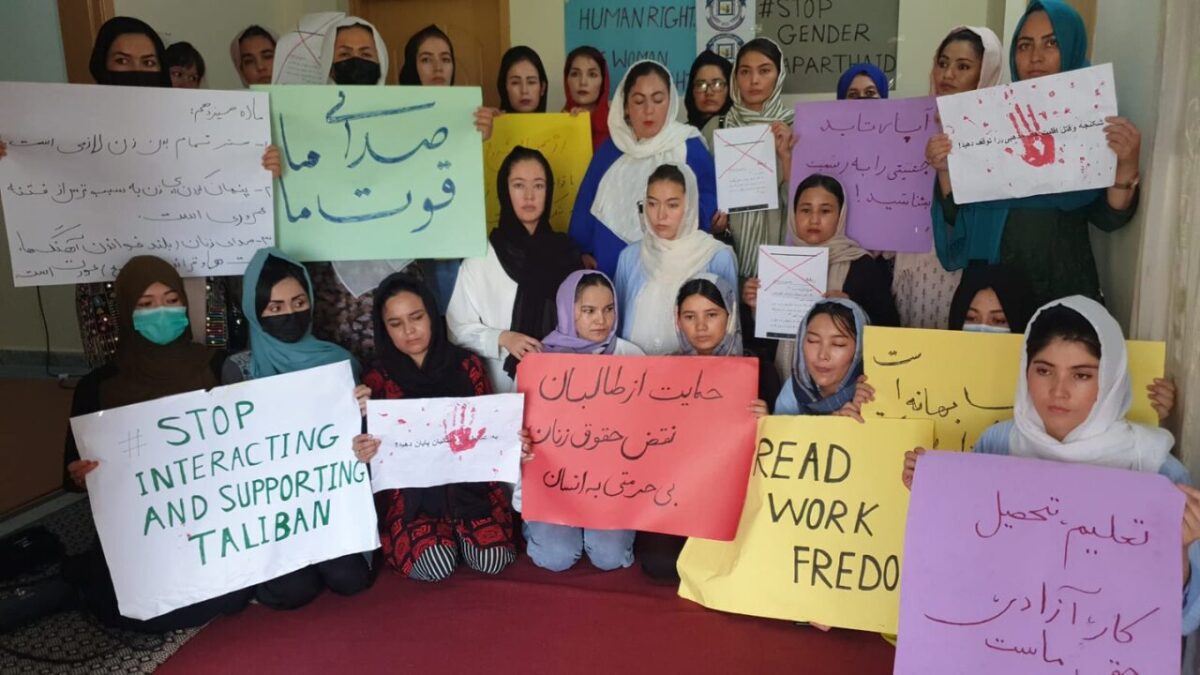The Women’s Movement “Window of Hope” on Sunday condemned the Taliban’s newly enacted law, asserting that the “absent leader of the Taliban lacks the legal and legitimate authority to ratify laws.”
“Taliban is a group foreign to the culture and identity of the Afghan people, and this law stands in opposition to the culture, traditions, and even the beliefs of the people,” the movement said in a statement.
The movement further criticized the law, titled “The Law of Commanding Good and Forbidding Evil,” as a severe violation of the fundamental human rights and freedoms of Afghan women, stating that it aims to silence women, even within the confines of their own homes.
According to the movement, the enactment of this law marks the end of any hopes for the reopening of schools and universities, as well as for women returning to their workplaces.
The statement describes the Taliban’s law and the governing body enforcing it as “anti-women and anti-human rights,” warning that it will return women to the grim realities of the 1990s.
The women in the movement expressed their defiance by symbolically tearing up the law’s pages, declaring their rejection of its “inhumane provisions.” They also called on the international community and the United Nations to shift their approach from engaging with the Taliban to imposing sanctions and punitive measures against the regime, urging immediate action to save Afghan women from what they describe as a “horrific prison.”
This comes as Taliban made public the vice and virtue law last week, which is now in effect. Notably, Article 13 of this law defines a woman’s voice as forbidden and mandates that women’s voices should not be heard.
It also requires women to fully cover their faces and bodies.
The law, spanning 114 pages, is heavily focused on restricting and prohibiting the basic human rights of women, effectively stripping them of all their rights.





